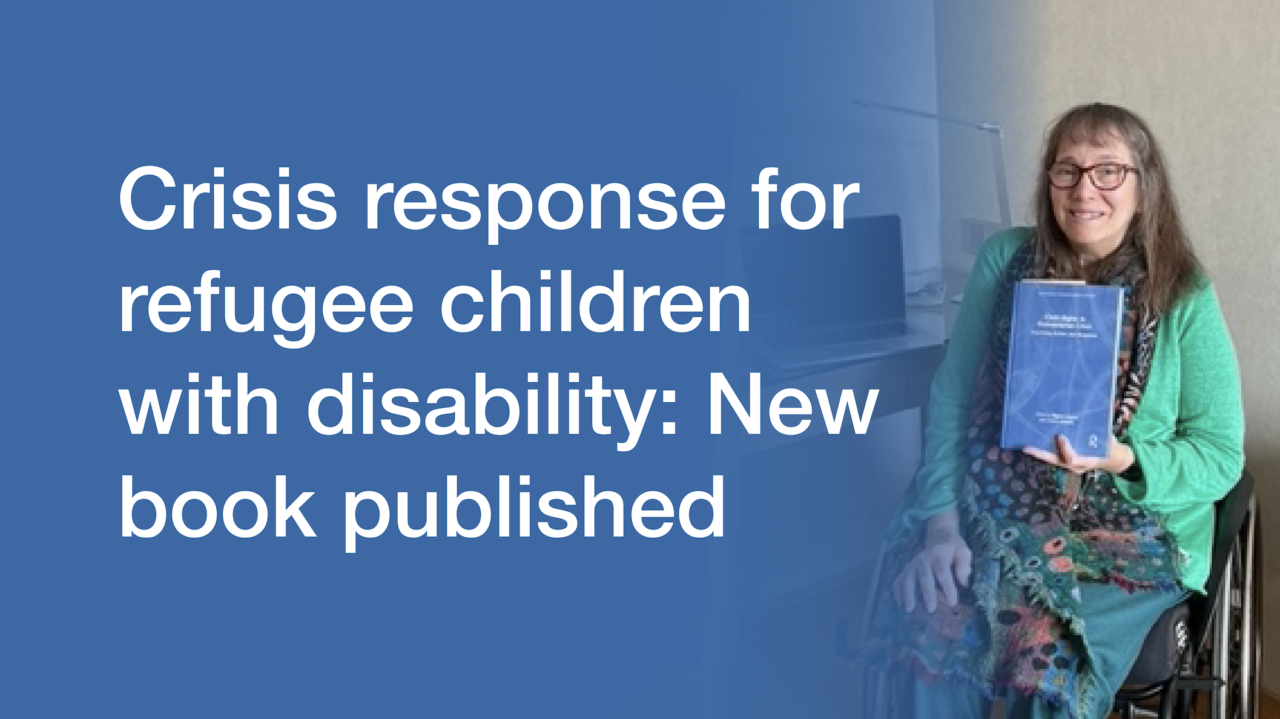Jamie Bolling is at the Nordic Network Disability Research conference (NNDR) to talk about refugee children with disability and the work done during the Independent Living Institute’s project – Disabled Refugees Welcome:
The presentation to be given by Jamie on Friday the 12th of May in the Hilton Nordica will highlight the area of crisis response for refugee children with disabilities and of integration based on work that was and is carried out in Sweden through the Disabled Refugees Welcome project since 2017 and the 6th chapter in the Routledge book – Child Rights in Humanitarian Crisis edited by Rigmor Argren och Jessica Jonsson affiliated to the Örebro University. There are assumptions that children and disabled persons are not among those coming ashore in Europe, leaving governments unprepared for the reception. Through meetings with refugees with disabilities who came to Sweden during the refugee influx of 2015, the Independent Living Institute heard stories on how refugee children with disabilities are met with inaccessibility, poor treatment, prejudice, lack of support and more. They should instead be accessing their rights of self-determination and participation with their best interests taken into consideration. Refugee children with disabilities lack information that may lead to a lack of agency and empowerment, with their voices not being heard. Some of the conclusions drawn from the DRW project are that there is a gap and need for actors within the area of disability and migration to have competences in both these areas. The disability perspective, intersectional perspective, health perspective and rights perspective need to be applied when working in the field of crisis management concerning migration and integration. Another conclusion is all organisations should contribute to a paradigm shift in the humanitarian response, going from paternalism to one of empowerment and the right to participation of refugee children. The aim of the presentation is to spread the lessons learned through Disabled Refugees Welcome to help avoid the unpreparedness in the response to the situation of refugee children with disabilities. It is also hoped that it will facilitate the safeguarding of the protection of refugee children with disabilities through participation and empowerment.
More info on the book:
This book demonstrates how a focus on children’s rights can help practitioners to safeguard children during humanitarian crisis.
Child Rights in Humanitarian Crisis focuses on understanding and advancing child rights through practical applications of a child rights perspective in crisis response. The book establishes that with accessible, child friendly participatory means, crisis response can improve from a child rights perspective, and even advance children’s rights, whilst also supporting and furthering the development of a child’s agency. The volume presents the reader with a clear focus on children from a range of backgrounds, including those most marginalised, such as children with disabilities. Drawing on expertise from the field as well as academia and providing practical examples which link case studies to legal policies in recent and protracted humanitarian responses, such as in Turkey and at the Lithuania-Belarus border, this book is a treasure trove of advice from some of the humanitarian and development sector’s experienced professionals.
Combining insights from both research and practice, this book will be an essential read for humanitarian students and practitioners.
Find more about ENIL’s session during the NNDR here.



